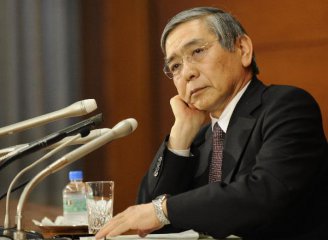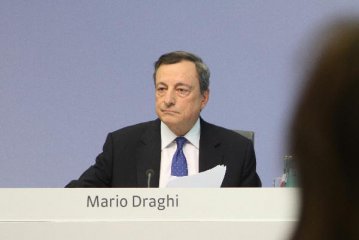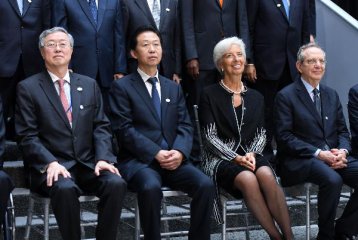
"Research has confirmed that central banks are not powerless at the effective lower bound," President of the European Central Bank (ECB) Mario Draghi said here Wednesday, reiterating the effectiveness of non-standard monetary policy taken by central banks on both sides of the Atlantic since the last financial crisis.
Draghi delivered a keynote speech at the 6th Lindau Nobel Laureate Meeting on Economic Sciences, saying that central banks can continue pursuing their price stability mandates even in the most adverse circumstances, as long as they are willing to explore non-standard policy avenues including forward guidance, large-scale asset purchase, etc.
"While forward guidance is a useful instrument, recent research has highlighted that its effectiveness can be improved if combined with other non-standard monetary policies," he added.
ECB has kept the Eurozone base interest rate at historical lowest level of zero for 18 consecutive months, while buying bonds of over 2,000 billion euros as of July, which provided the euro area with impulse in inflation recovery as well as favorable financing conditions to corporations and households.
"Large-scale asset purchases can ease these constraints and increase investors' risk-bearing capacity, leading to a portfolio rebalancing towards risky assets and to strengthened lending activity for banks," Draghi said.
In addition, the ECB head regarded the unconventional tool of monetary policy -- "Outright Monetary Transactions"(OMT) -- a program to purchase bonds issued by Eurozone member-states in secondary sovereign bond markets under certain conditions, which was announced by the ECB in 2012 but was never used so far, as effective too.
"That the ECB had the tool at its disposal was sufficient to anchor expectations at the 'good' outcome," Draghi said, concluding that policy actions undertaken in the last ten years in monetary policy and in regulation and supervision have made the world more resilient.
"But we should continue preparing for new challenges," adding that policies, especially monetary policy, needed to be adjusted, even though it was never easy, when the world changes as it did ten years ago.
17 Nobel Laureates participate in the four-day Lindau Meeting on Economic Sciences kicked off Wednesday. They meet with 350 young economists from 66 countries and regions.
The Lindau Nobel Laureate Meetings, originally as European initiative of post-war reconciliation among scientists, focus alternately on physiology and medicine, physics, chemistry and economic science, aiming to foster the exchange among scientists of different generations, cultures, and disciplines.






















Latest comments